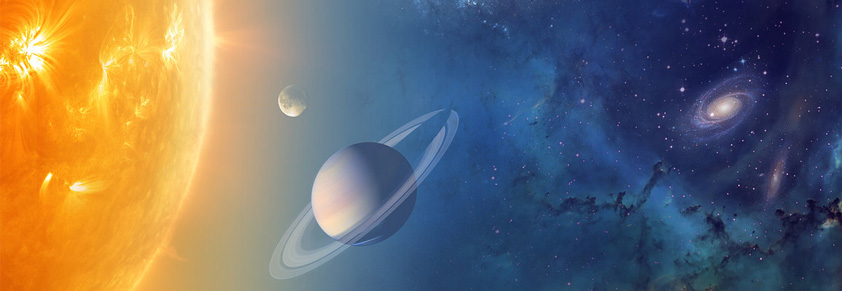Will Aliens Look Like Us?
For all the discussion about UFOs and alien races, there frequently seems to be an understood agreement that aliens have to somehow look or be like us. That is, if Darwin’s theory of evolution is good enough for our evolutionary line, it’s also good enough for alien life as regards to their evolution.
Aliens Evolved to Be Humanlike
In a recent finding, scholars at the University of Oxford determined that aliens may be more like us than we think, arguing that Hollywood often has it wrong.
![]() Sam Levin, a researcher in Oxford’s Department of Zoology notes, “By predicting that aliens have undergone major transitions—which is how complexity has arisen in species on Earth, we can say that there is a level of predictability to evolution that would cause them to look like us.”
Sam Levin, a researcher in Oxford’s Department of Zoology notes, “By predicting that aliens have undergone major transitions—which is how complexity has arisen in species on Earth, we can say that there is a level of predictability to evolution that would cause them to look like us.”
Referred to as convergent evolution, this theory is based on the observation that similar traits in unrelated organisms evolved as a result of adapting to comparable environmental challenges and thus the outcome of evolution is predictably inevitable.
Aliens That Are Really Alien
However, just as it can be argued that evolution is convergent, the opposite can be equally argued.
 In an NPR article by Jonathan Losos, the opposite theory was shown to be plausible. “We don’t need to find life on other planets to test the convergence hypothesis. All we have to do is go to New Zealand, an island on which life has diversified in the absence of terrestrial mammals. If the outcome of natural selection is deterministic, then a world dominated by birds would look pretty much like life elsewhere on the planet. But of course, it doesn’t. The kiwi may live a lifestyle similar to a badger, but it doesn’t look at all like one. The dominant herbivore is, or was, a 10-foot tall bird (the moa), quite different from deer or bison. Throw in flightless parrots, carnivorous parrots, bats that forage by walking around in the leaf-litter and many more, and we can throw the convergence hypothesis out the window. New Zealand is a distinct evolutionary world, the evolutionary outcome unique.”
In an NPR article by Jonathan Losos, the opposite theory was shown to be plausible. “We don’t need to find life on other planets to test the convergence hypothesis. All we have to do is go to New Zealand, an island on which life has diversified in the absence of terrestrial mammals. If the outcome of natural selection is deterministic, then a world dominated by birds would look pretty much like life elsewhere on the planet. But of course, it doesn’t. The kiwi may live a lifestyle similar to a badger, but it doesn’t look at all like one. The dominant herbivore is, or was, a 10-foot tall bird (the moa), quite different from deer or bison. Throw in flightless parrots, carnivorous parrots, bats that forage by walking around in the leaf-litter and many more, and we can throw the convergence hypothesis out the window. New Zealand is a distinct evolutionary world, the evolutionary outcome unique.”
If Aliens Exist, They May Come to Get Us, Stephen Hawking Says
Stephen Hawking has repeatedly warned of broadcasting our existence into space. An advanced spacefaring extraterrestrial civilization could end up wandering the universe in enormous spaceships on the prowl for vital materials after consuming the natural resources of their own world as Hawking explained in an episode of the show Into the Universe with Stephen Hawking, which aired on the Discovery Channel.
We have no reason to assume alien civilizations would be benevolent or that they wouldn’t be interested in Earth. “Such advanced aliens would perhaps become nomads, looking to conquer and colonize whatever planets they could reach,” Hawking said. “If so, it makes sense for them to exploit each new planet for material to build more spaceships so they could move on. Who knows what the limits would be?”
In L. Ron Hubbard’s novel Battlefield Earth, the majority of the human race is wiped out by alien invaders. The Psychlo invaders discover Earth’s coordinates from the golden disc carried by Voyager I, and as the aliens tell it:
“Man apparently sent out some kind of probe that gave full directions to the place, had pictures of man on it and everything. It got picked up by a Psychlo recon. And you know what? The probe and the pictures were on a metal that was rare-rare-rare everywhere and worth a clanking fortune. And Intergalactic paid the Psychlo governors sixty trillion Galactic credits for the directions and the concession. One gas barrage and we were in business.” —excerpt from Battlefield Earth
We interviewed public at a Comic Con for their opinion on the existence of aliens and here were some of their responses:
Exoplanets
The recent discovery of a myriad of potentially habitable exoplanets (planets that orbit a star outside the solar system) around our galaxy has raised an overall interest in the search for alien life forms and validated that we are not alone in the universe. But again, this is an assumption that aliens, in order to exist, must be humanlike and from an Earthlike planet—a baseless assumption.
As of this writing, NASA with its Kepler space telescope has listed 3,705 confirmed exoplanets with another 4,496 candidates from 2,760 star systems with only 929 being Earthlike.
One such system is Trappist-1 with potentially seven Earthlike planets. NASA has created an artist rendering of what this may look like which you can see on the following link:
What do you think?
Will aliens look like us?
Other articles and resources you may be interested in:
Alien Invasion, is man an endangered species?
Is Earth prepared for an alien invasion?






Leave a Reply
Want to join the discussion?Feel free to contribute!